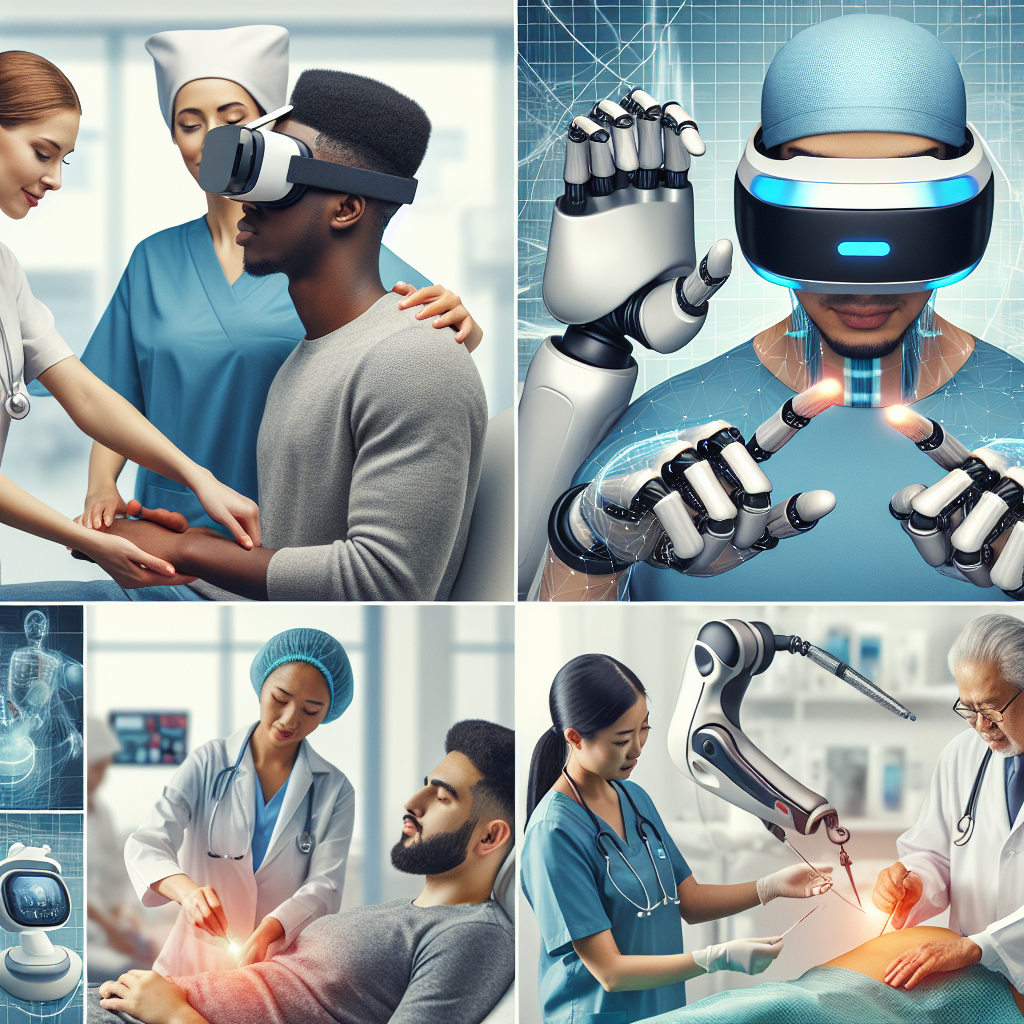The Benefits of Integrating AI in Healthcare
Artificial intelligence (AI) has the potential to revolutionize the healthcare industry in numerous ways, from improving patient care to streamlining administrative processes. As technology continues to advance, more and more healthcare organizations are exploring the benefits of integrating AI into their operations. In this article, we will discuss some of the key benefits of AI in healthcare and how it is transforming the industry.
1. Improved Diagnostics and Treatment Planning
One of the most significant benefits of AI in healthcare is its ability to enhance diagnostics and treatment planning. AI algorithms can analyze vast amounts of data, such as medical images, lab results, and patient histories, to identify patterns and make accurate diagnoses. This can help healthcare providers to detect diseases earlier, provide more personalized treatment plans, and improve patient outcomes.
For example, AI-powered imaging tools can help radiologists to detect abnormalities in medical scans more quickly and accurately than traditional methods. This can lead to faster diagnoses and better treatment outcomes for patients. AI can also help oncologists to develop personalized treatment plans for cancer patients based on their genetic profiles and other factors, leading to more effective and targeted therapies.
2. Predictive Analytics and Preventive Care
AI can also be used to analyze patient data and predict future health outcomes, allowing healthcare providers to intervene early and prevent the progression of diseases. By monitoring patients’ health data in real-time, AI algorithms can identify signs of deterioration or potential health risks and alert healthcare providers to take action.
For example, AI-powered wearable devices can monitor patients’ vital signs and alert them to any changes that may indicate a health issue. This can help patients to take proactive steps to improve their health and prevent the onset of chronic conditions. AI can also help healthcare providers to identify high-risk patients who may benefit from preventive interventions, such as lifestyle changes or early screenings.
3. Enhanced Patient Engagement and Communication
AI technologies, such as chatbots and virtual assistants, can improve patient engagement and communication by providing patients with instant access to information and support. These tools can answer patients’ questions, provide personalized health advice, and help them to manage their health conditions more effectively.
For example, AI-powered chatbots can help patients to schedule appointments, refill prescriptions, and access their medical records online. This can improve the patient experience and reduce the burden on healthcare providers by automating routine tasks. AI can also be used to send personalized health reminders and alerts to patients, encouraging them to follow their treatment plans and stay on track with their care.
4. Streamlined Administrative Processes
AI can also streamline administrative processes in healthcare, reducing inefficiencies and improving workflow. AI-powered tools can automate tasks such as billing, coding, and scheduling, freeing up healthcare providers to focus on patient care. This can help to reduce administrative costs, increase productivity, and improve the overall efficiency of healthcare organizations.
For example, AI algorithms can analyze electronic health records (EHRs) to identify coding errors and ensure that claims are submitted accurately and on time. This can help to reduce billing errors and denials, leading to faster reimbursement for healthcare providers. AI can also help to optimize scheduling by matching patients with available appointment times and reducing wait times for care.
5. Research and Development
AI can accelerate the pace of medical research and drug development by analyzing complex datasets and identifying new insights and trends. AI algorithms can help researchers to identify potential drug targets, predict drug interactions, and design more effective clinical trials. This can lead to the development of new treatments and therapies that improve patient outcomes and save lives.
For example, AI can analyze large-scale genomic data to identify genetic mutations that contribute to disease risk and progression. This information can help researchers to develop targeted therapies for patients with specific genetic profiles, leading to more effective treatments. AI can also help to identify new drug candidates by analyzing chemical structures and predicting their potential efficacy and safety.
FAQs
Q: Is AI in healthcare safe and secure?
A: Yes, AI in healthcare is designed to prioritize patient privacy and security. Healthcare organizations must comply with strict regulations, such as the Health Insurance Portability and Accountability Act (HIPAA), to protect patient data and ensure that AI algorithms are used responsibly. Additionally, AI technologies are continually being improved to enhance their security features and reduce the risk of data breaches.
Q: Will AI replace healthcare providers?
A: While AI can automate certain tasks and improve the efficiency of healthcare operations, it is not intended to replace healthcare providers. AI is meant to support and augment the work of healthcare professionals by providing them with valuable insights and tools to improve patient care. Healthcare providers will continue to play a critical role in delivering personalized and compassionate care to patients.
Q: How can healthcare organizations implement AI?
A: Healthcare organizations can implement AI by partnering with technology vendors, investing in AI training for staff, and integrating AI tools into existing systems. It is important for healthcare organizations to assess their needs and goals before implementing AI to ensure that it aligns with their strategic objectives. Collaboration with AI experts and ongoing evaluation of AI performance are also essential to successful implementation.
In conclusion, the integration of AI in healthcare offers numerous benefits, from improving diagnostics and treatment planning to enhancing patient engagement and communication. By leveraging AI technologies, healthcare organizations can improve patient outcomes, reduce costs, and streamline administrative processes. As AI continues to advance, it will play an increasingly important role in transforming the healthcare industry and improving the quality of care for patients.

